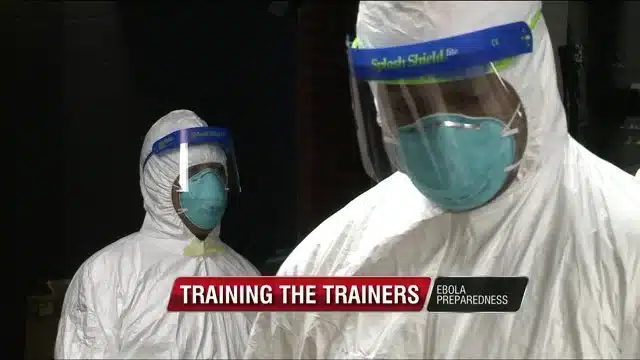First responders trained on Ebola Safety

11.04.14
WREG – News Channel 3
First responders trained on Ebola Safety
MEMPHIS, Tenn. — “We have to make sure there’s no skin exposed,” Lloyd Kimble said.
Kimble practiced getting suited up as if he was responding to a possible case of Ebola.
“The suits were light. The instructions were clear,” Kimble said.
Kimble is an employee with the Shelby County Health Department, but stood shoulder to shoulder with law enforcement and firefighters during the training.
“We don’t want to wait until there’s a case that presents itself. We want to be prepared,” Diana Kelly, with the Medical Education and Research Institute (MERI), said.
MERI helped organize the training with the help of grants and private donations.
“All of our first responders stay pretty busy,” Kelly said.
The men and women in the training are trainers from different agencies across Shelby County.
The trainers got schools on what to do and what not to do when dealing with a possible case of Ebola.
“Some patients might not present themselves directly to the hospital,” Lt. Jim Logan, with the Memphis Fire Department, said.
When first responders make the scene of a suspected Ebola case, experts said they need to know how to keep themselves safe.
Health officials said it’s important for first responders to know how to put all of the protective equipment on properly and just as important to know how to take it off.
The process is long and very meticulous.
“A lot of myths were cleared up and how to protect ourselves, that was stressed. That’s the most important part. So I learned a lot. It was invaluable,” Kimble said.
by Michael Quander
